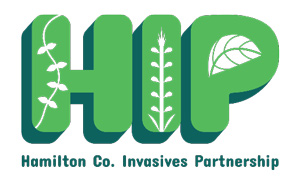 Even in nature, green is not always good.
Even in nature, green is not always good.
Hamilton County landscapes are encountering growing threats from non-native plants. Invasive plants introduced in this region decades ago for landscaping and other purposes are now a serious concern for local parks, public green spaces, and residents’ own backyards.
More and more, Hamilton County’s beautiful native trees, plants and wildlife are losing the fight against these aggressive plants, vines, trees and insects that consume nutrients, disrupt the ecological balance and disfigure the outdoor world where county residents hike, bike, picnic, play and relax.
In an effort to restore this balance, the organizations of the Hamilton County Invasives Partnership (HIP) are inviting volunteers to help rescue public parks from invasive species by participating in Weed Wrangles. During the Weed Wrangles, teams of volunteers, supervised by knowledgeable guides, will locate and uproot unwelcome plants such as bush honeysuckle, garlic mustard, autumn olive, English ivy and winter creeper.
Weed Wrangles will take place throughout the month of April – and the year – at selected areas within five public parks and trails across Hamilton County. April locations are Ritchey Woods and Cheeney Creek in Fishers, Strawtown Koteewi Park east of Cicero, Midland Trace Trail in Westfield, and Dillon Park in Noblesville.
Those wishing to volunteer for Weed Wrangles should visit hcinvaives.org, choose the location where they’d like to work, and pre-register.
You can also make a difference by joining the HIP Strike Team invasives management group or by removing any invasive plants that appear on your property; this prevents their inevitable spread to other yards and public spaces. Always try to landscape with native plants and avoid the purchase of potentially invasive species sold by some nurseries.
Information about Weed Wrangles and managing invasive species on your own property can be found on the Hamilton County Invasives Partnership website, hcinvasives.org.
